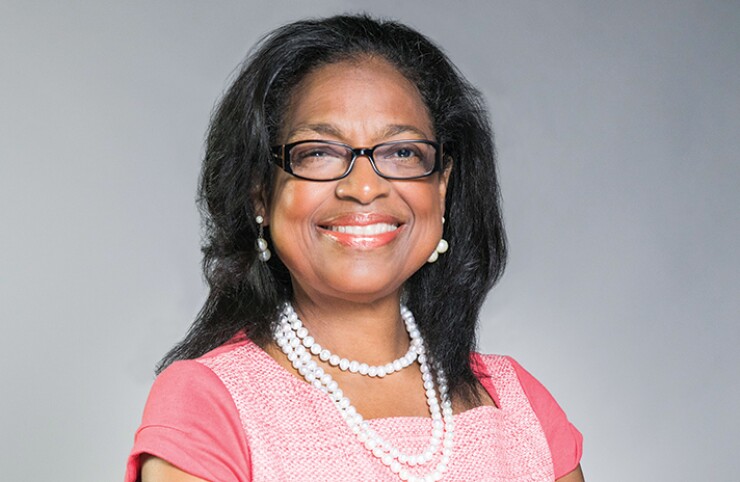Chief Auditor, BNY Mellon
Paulette Mullings Bradnock keeps making history at Bank of New York Mellon.
Two years ago, Bradnock became the first woman to hold the title of chief auditor at the venerable bank. This year, the Federal Reserve Bank of New York invited Bradnock to its Supervisory College to deliver a presentation on BNY Mellon’s audit methodologies and processes. The bank appears before the Supervisory College every year and this was the first time that its chief auditor had been asked to speak.

Bradnock’s appearance before the panel, which also included the Federal Deposit Insurance Corp., the New York State Department of Financial Services and several European regulators, speaks to how much the internal auditing function has changed in the years since the financial crisis.
Whereas internal audits were once largely confined to finance and compliance, regulators and audit committees are now expecting auditors to take an enterprisewide view of risk. It’s becoming increasingly common, for example, for auditing teams to assess strategic and operational risks related to products and services and to examine overall risk culture to ensure it aligns with the company’s stated values.
See the most recent rankings:
•
•
•
Given these heightened expectations, Bradnock has spent a considerable amount of her time building up her team. She now has a staff of more than 320 auditors, up from roughly 240 when she joined BNY Mellon in May of 2015.
Bradnock said that among large institutions “there is a war for internal auditors,” so attracting, keeping and developing talent is among her highest priorities. Last year she implemented an audit internship program for college students and has already hired several former interns that have since graduated.
“We can’t just be picking off [auditors] from other banks because it is too expensive,” she said. “We need to develop our own pipeline of talent.”
Bradnock has also revamped the compensation structure to keep pace with competitors and has put in place a flexible work arrangement program that allows employees to work from home up to two days a week. These initiatives have helped to boost employee engagement scores and reduce turnover within the audit department.





